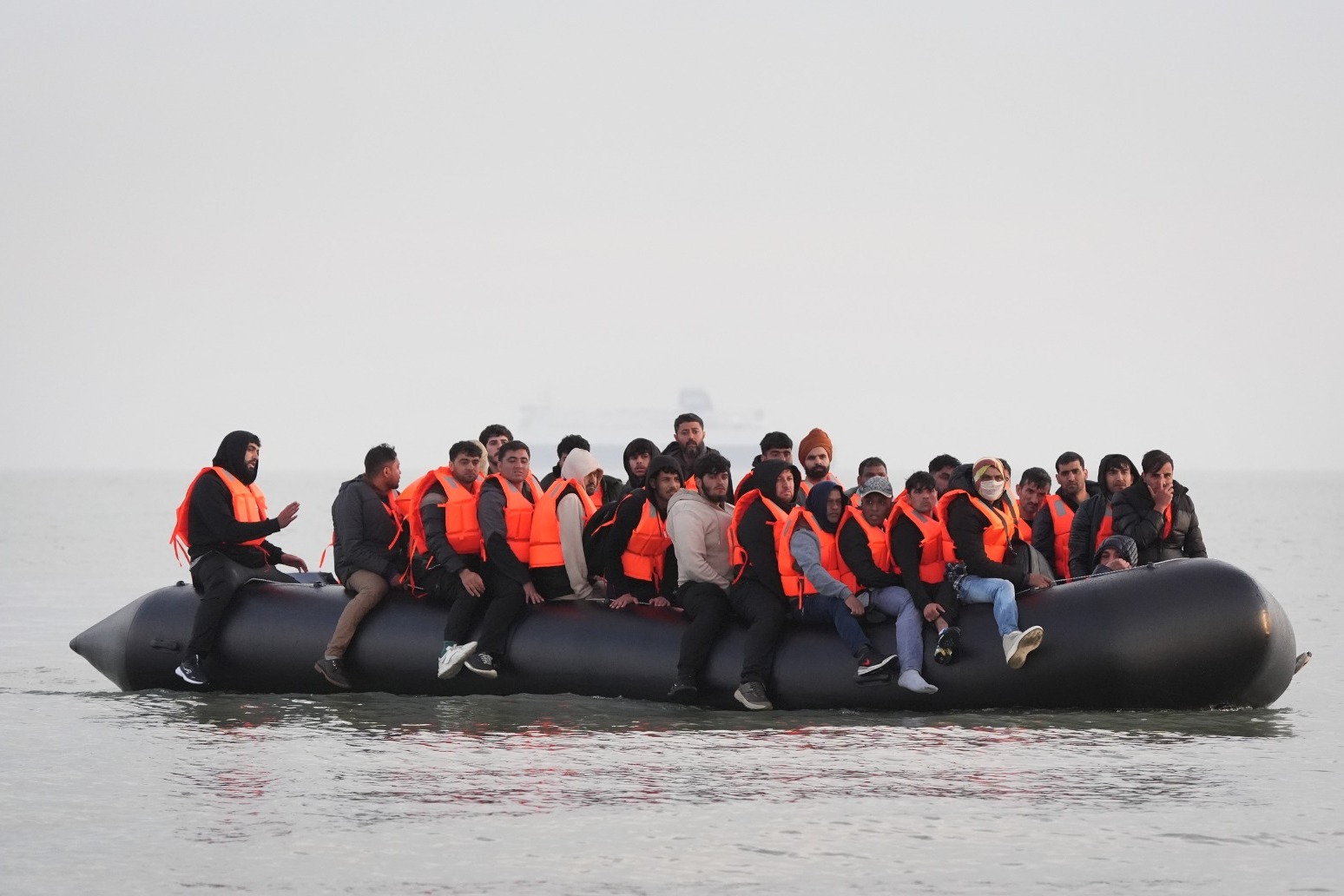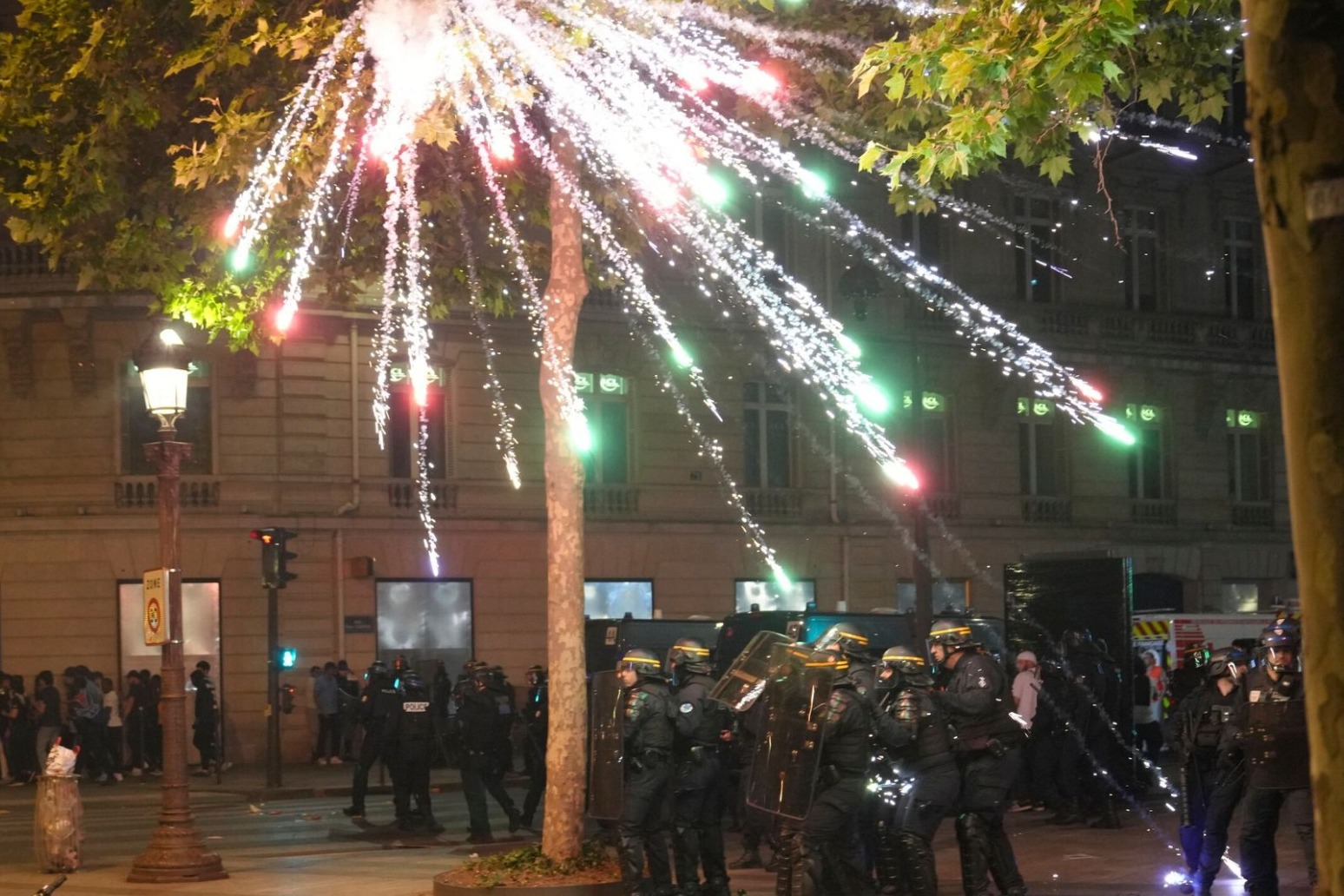
An agreement for a four-day ceasefire in Gaza and the release of dozens of Hamas-held hostages and Palestinians imprisoned by Israel appeared to have hit a last-minute snag after a senior Israeli official said it would not take effect until Friday.
The diplomatic breakthrough promised some relief for more than 1.7 million Palestinians who have fled their homes under weeks of Israeli bombardment, as well as families in Israel fearful over the fate of loved ones captured during Hamas’ October 7 attack that triggered the war.
Israel’s national security adviser, Tzachi Hanegbi, announced the delay late on Wednesday, without providing a reason. The ceasefire had originally been due to start at 10am local time (8am GMT) on Thursday.
Israeli media reported that some final details are still being worked out.
The Persian Gulf nation of Qatar, which played a key role in mediating with Hamas, said early on Thursday that a new time for the agreement to go into force would be announced “in the coming hours”.
The US and Egypt also helped negotiate the deal.
The agreement had raised hopes of eventually winding down the war, now in its seventh week, which has levelled vast swathes of Gaza, fuelled a surge of violence in the occupied West Bank, and stirred fears of a wider conflict across the Middle East.
Israeli Prime Minister Benjamin Netanyahu told a nationally televised news conference that the war would resume after the truce expires, with the goal of destroying Hamas’ military capabilities, ending its 16-year rule in Gaza and returning all of the estimated 240 captives held in Gaza by Hamas and other groups.
“The war is continuing. We will continue it until we achieve all our goals,” Mr Netanyahu said, adding that he had delivered the same message in a phone call to US President Joe Biden.
Washington has provided extensive military and diplomatic support to Israel since the start of the war.
If implemented, the deal temporarily freezes both sides at a delicate moment.
Israeli troops hold much of northern Gaza and say they have dismantled tunnels and much of Hamas’ infrastructure there.
On Wednesday, Israeli forces revealed what they said was a major Hamas hideout in a tunnel beneath Shifa Hospital.
The territory’s largest medical centre has been at the heart of a fierce battle of narratives over both sides’ allegedly reckless endangerment of civilians.
Israel meanwhile ordered the full evacuation of the Indonesian Hospital in the north, Dr Munir al-Boursh, a health ministry official inside the facility, told Al-Jazeera television.
He said hospital officials were trying to organise buses to evacuate some 200 patients, including older adults and children with burn injuries.
Fighting has raged outside the hospital for days, and hundreds of people have already been evacuated to the south.
Despite the advances in the north, Israeli officials acknowledge that much of Hamas’ infrastructure remains intact.
Israel has threatened to launch wider operations in southern Gaza, where hundreds of thousands of people who fled the north have crammed into overflowing UN-run shelters with dwindling food, water and basic supplies.
For Hamas, the ceasefire would provide an opportunity to regroup after weeks of apparently heavy losses. Hamas leader Yehya Sinwar, who is believed to be alive and in hiding in Gaza, is likely to claim the release of Palestinian prisoners as a major achievement and declare victory if the war ends.
Under the truce deal, 50 hostages will be freed in stages, in exchange for the release of what Hamas said would be 150 Palestinian prisoners.
Both sides will release women and children first, and Israel said the truce would be extended an extra day for every additional 10 hostages freed by Hamas.
The return of hostages could lift spirits in Israel, where their plight has gripped the country.
Families of the hostages have staged mass demonstrations to pressure the government to bring them home.
Qatar said the ceasefire would allow a “larger number of humanitarian convoys and relief aid” to enter Gaza, including fuel, but it gave no details on actual quantities.
Israel cut off all fuel imports at the start of the war, causing a territory-wide blackout and leaving homes and hospitals reliant on generators, which have also steadily been forced to shut down.
Mr Netanyahu said the deal includes a provision for the International Committee of the Red Cross to visit the hostages in captivity.
Israel’s justice ministry published a list of 300 prisoners eligible to be released, mainly teenagers detained over the past year for rock-throwing and other minor offences.
The war erupted when several thousand Hamas militants stormed into southern Israel, killing at least 1,200 people, mostly civilians, and taking scores of hostages, including babies, women and older adults, as well as Israeli soldiers.
Israel has a long history of agreeing to prisoner swaps with militant groups, and Hamas is expected to demand a large number of high-profile Palestinian prisoners in exchange for the soldiers.
Weeks of Israeli air strikes in Gaza, followed by a ground invasion, have killed more than 11,000 Palestinians, according to the health ministry in the Hamas-run territory. It does not differentiate between civilians and militants, though some two thirds of the dead have been identified as women and minors.
The ministry said that as of November 11 it had lost the ability to count the dead because of the collapse of large parts of the health system, but that the number has risen sharply since then. Some 2,700 people are missing and believed buried under rubble.
Israel says it has killed thousands of Hamas fighters, though it has presented no evidence for its count.
Three quarters of Gaza’s population of 2.3 million have been displaced in the war. Many, if not most, will be unable to return home because of the vast damage and the presence of Israeli troops in the north.
Published: by Radio NewsHub














